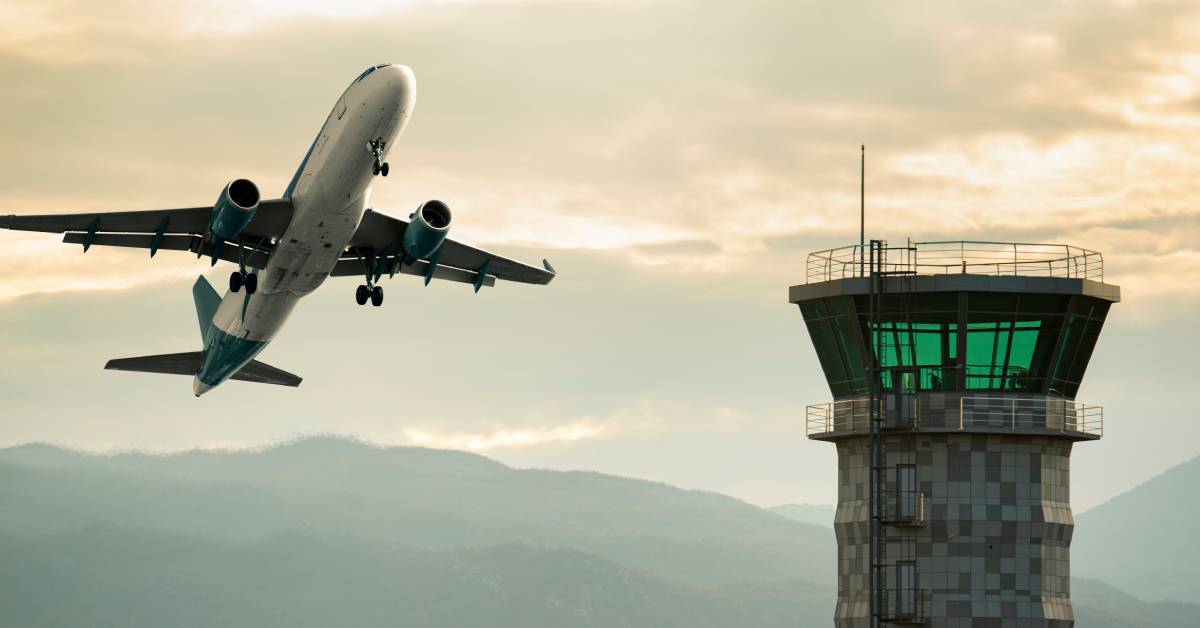15 Qualities of a Good Aircraft Dispatcher
Aircraft dispatchers are the backbone of flight operations. They guarantee the safe and efficient management of flights while collaborating with pilots, air traffic controllers, and airline operations teams.
But what makes someone excel in this demanding role? If you’re pursuing a career as an aircraft dispatcher, explore the numerous qualities of a good aircraft dispatcher. These characteristics enable them to excel in this high-pressure field. Continue reading to learn if you have what it takes to thrive in this profession.
Communication Skills
A good aircraft dispatcher combines clarity, conciseness, and confidence in all their interactions. In this profession, dispatchers must relay critical information clearly and directly to pilots, crew members, and air traffic controllers. Whether providing updates on flight conditions, relaying operational changes, or issuing instructions during emergencies, an aircraft dispatcher ensures that they convey information precisely and promptly. Miscommunication in this field can lead to operational delays or safety risks.

Situational Awareness
Situational awareness is essential for every aspect of an aircraft dispatcher’s responsibilities. They must assess multiple factors simultaneously, including weather forecasts, air traffic conditions, fuel levels, and regulatory considerations.
By maintaining a constant awareness of various elements, the dispatcher can anticipate challenges, make proactive decisions, and ensure the safety of each flight. This perspective enables them to avoid reactive resolutions and prioritize proactive problem-solving.
Decision-Making Abilities
The aviation industry requires rapid, accurate decision-making. A good aircraft dispatcher analyzes available data, evaluates potential outcomes, and arrives at optimal decisions under tight time constraints. This includes decisions concerning route adjustments, emergency diversions, and mitigating disruptions. Decisive and informed action not only supports operational efficiency but also provides safety for passengers and crew.
Critical Thinking
Critical thinking complements decision-making by allowing dispatchers to evaluate scenarios thoroughly and consider multiple perspectives. These professionals must be able to distinguish between urgent and non-urgent situations to appropriately prioritize various tasks. This characteristic enhances their capacity to evaluate risks and arrive at effective, logical solutions.
Attention to Detail
Given the complexity of flight dispatching, attention to detail is critical. From monitoring flight routes to adhering to regulatory standards, a good aircraft dispatcher cannot afford to overlook any aspect of their responsibilities.
Precise calculations in fuel levels, compliance with federal aviation regulations, and verifying weather conditions all depend on the dispatcher’s attention to detail. The smallest oversight in this role can have significant repercussions. Individuals interested in this field must possess the ability to act meticulously.
Problem-Solving Skills
Problem-solving is another defining quality of a good aircraft dispatcher. Dispatchers frequently confront unexpected challenges like mechanical malfunctions, adverse weather conditions, or air traffic congestion.
Effective problem-solving involves assessing each situation quickly, identifying feasible solutions, and implementing resolutions with confidence. A dispatcher’s ability to resolve problems promptly ensures minimal disruptions to operations while maintaining passenger safety.
Collaboration and Teamwork
Aircraft dispatching is not a solitary task. Dispatchers regularly coordinate with pilots, air traffic controllers, maintenance crews, and airline operations personnel.
Strong collaboration and teamwork skills are necessary for seamless communication and unified decision-making. By fostering trust and mutual respect within these teams, a good aircraft dispatcher operates cohesively with other personnel.
Adaptability
The aviation industry has dynamic, continuously changing conditions. Aircraft dispatchers must be flexible to consistently meet the demands of this high-stakes profession. Whether they’re handling last-minute schedule changes, emergency situations, or unexpected regulatory updates, adaptability allows them to remain effective under any conditions.
Knowledge of Regulations
A good aircraft dispatcher must possess an in-depth understanding of aviation regulations. Familiarity with guidelines established by the Federal Aviation Administration (FAA) and the International Civil Aviation Organization (ICAO) is fundamental for compliance and operational safety. This includes regulations regarding flight planning, fuel management, crew scheduling, and emergency protocols. Dispatchers must also stay current with evolving regulations and integrate them into their daily operations diligently.

Technical Proficiency
A skilled dispatcher is proficient in various software tools, including flight planning systems, weather monitoring applications, and real-time communication platforms. Technical proficiency enables dispatchers to manage multiple aspects of their role, including optimizing flight routes and monitoring navigation systems. Familiarity with these tools enhances analytical capabilities and streamlines aviation processes.
Stress Management
Many people crack under pressure. Aircraft dispatchers operate in high-pressure environments where split-second decisions can impact safety and efficiency.
To be an aircraft dispatcher, people must maintain composure under stress. It’s important to be able to think clearly and act knowledgeably during time-sensitive situations. Effective stress management supports dispatchers’ performances and instills confidence in the teams they collaborate with.
Organizational Skills
Dispatching flights involves handling a multitude of tasks simultaneously. Planning flight schedules, monitoring fuel requirements, and issuing weather updates are a few of the necessary organizational skills that dispatchers must prioritize. An efficient organization facilitates smooth operations and minimizes various risks.
Analytical Thinking
Analytical thinking for aircraft dispatchers encompasses tasks such as analyzing weather models and evaluating fuel efficiency metrics. They must interpret complex data sets, identify patterns, and apply insights to resolve challenges. Dispatchers’ decisions impact staff and passengers’ well-being. This skill ensures that their actions are both data-driven and strategically sound.
Passion for Aviation
Passion sets exceptional aircraft dispatchers apart from others. A genuine enthusiasm for aviation motivates individuals to excel in their roles. It drives their pursuit of continuous learning and professional growth. Their passion inspires their work and influences their colleagues positively, contributing to a strong and motivated team dynamic.
Commitment to Safety
Above all, a good aircraft dispatcher prioritizes safety. A commitment to safety is a component in every aspect of an aircraft dispatcher’s role, from conducting pre-flight safety checks to managing in-flight emergencies. Their decisions must align with the primary objective of safeguarding passengers, crew, and aircraft. An unwavering dedication to safety cultivates trust among colleagues while complying with industry standards.
Become a Skilled Aircraft Dispatcher
Mastering the qualities of a good aircraft dispatcher requires dedication, training, and a strong commitment to excellence. Whether you’re considering this career or currently working in aviation, these qualities provide a roadmap for success in this role.
If you’re ready to take the next step toward becoming an aircraft dispatcher, IFOD invites you to explore our flight dispatch school. With comprehensive training programs and industry expertise, we’re here to help you develop the skills and knowledge needed to excel as an aircraft dispatcher.






